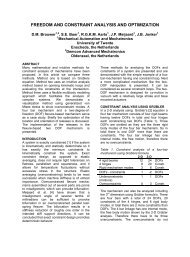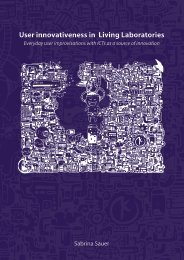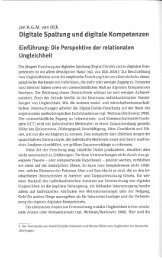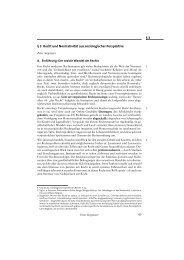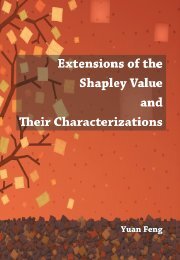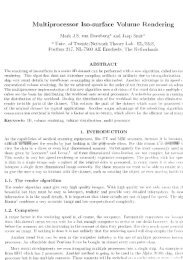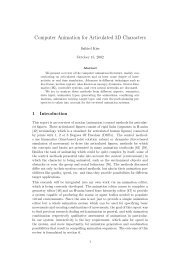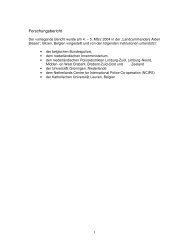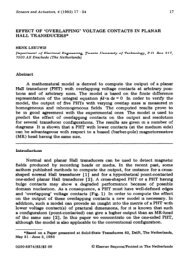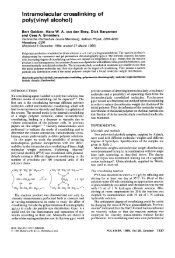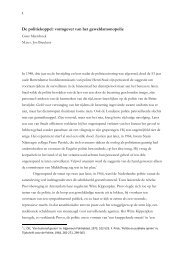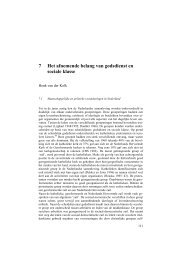Innovation and institutional change: the transition to a sustainable ...
Innovation and institutional change: the transition to a sustainable ...
Innovation and institutional change: the transition to a sustainable ...
Create successful ePaper yourself
Turn your PDF publications into a flip-book with our unique Google optimized e-Paper software.
Conclusions 229<br />
Observation 2: Consensus oriented approach <strong>to</strong> vision building<br />
A fur<strong>the</strong>r observation concerns <strong>the</strong> implicit focus on developing shared<br />
visions. But <strong>the</strong>re may be an inherent paradox in a consensus approach <strong>to</strong><br />
<strong>transition</strong>s. Radically new concepts that form <strong>the</strong> basis for <strong>transition</strong>s are<br />
generally not produced in that way. Think about Spence Silver who<br />
discovered <strong>the</strong> weak glue used for Post-it Notes, <strong>and</strong> who was explicitly<br />
ordered by his company that <strong>the</strong> rejection of fur<strong>the</strong>r funding of his invention<br />
(or mistake as <strong>the</strong> company called it) was final (section 2.4.2 <strong>and</strong> Garud <strong>and</strong><br />
Karnoe, 2001: 15). And about Kees Wiechers 3 who invented <strong>the</strong> concept<br />
green electricity, but found that almost no-one in his company believed in it.<br />
And about Eric-Jan Tuininga 4 who challenged <strong>the</strong> nuclear route, <strong>and</strong> in a<br />
1977 televised debate, found that his opponent who defended <strong>the</strong> nuclear<br />
route had expected Tuininga <strong>to</strong> defend coal as an alternative <strong>and</strong> was <strong>to</strong>tally<br />
taken by surprise when energy saving <strong>and</strong> cogeneration was proposed. What<br />
<strong>the</strong>se examples <strong>and</strong> many o<strong>the</strong>r new concepts that were initiated have in<br />
common is that <strong>the</strong>y are born out of alternative frames of reference, with<br />
only a few people initially believing in <strong>and</strong> committing <strong>to</strong> <strong>the</strong> new concept.<br />
The relative successful cases of decentral cogeneration <strong>and</strong> green electricity<br />
suggest that it is not necessarily about developing a shared vision but about<br />
developing an alternative vision <strong>and</strong> mobilising ac<strong>to</strong>rs along <strong>the</strong> way as<br />
initial alternative practices gain strength.<br />
Suggestion 2: Provide space for alternative frames of reference<br />
The observation shows <strong>the</strong> importance <strong>to</strong> provide space for alternative, out<br />
of <strong>the</strong> box, thinking. One way <strong>to</strong> facilitate this is <strong>the</strong> development of arenas<br />
<strong>and</strong> settings in which ac<strong>to</strong>rs are forced <strong>to</strong> make <strong>the</strong>ir underlying<br />
assumptions, beliefs <strong>and</strong> values explicit. Deliberative policy analysis is a<br />
useful <strong>to</strong>ol in this respect (Hisschemöller et al., 2002; Hoppe <strong>and</strong> Peterse,<br />
1998; Grin et al., 2004).<br />
Observation 3: Limited attention for co-evolution of innovation <strong>and</strong><br />
<strong>institutional</strong> <strong>change</strong><br />
Finally we want <strong>to</strong> stress that <strong>transition</strong> paths are shaped through <strong>the</strong><br />
emergence <strong>and</strong> formation of alternative <strong>institutional</strong> arrangements, implying<br />
new combinations of technological <strong>and</strong> organisational forms connected <strong>to</strong><br />
new patterns of interaction <strong>and</strong> coordination between ac<strong>to</strong>rs. Also <strong>the</strong> main<br />
dynamics in <strong>the</strong> electricity system in <strong>the</strong> past decades is based on emergence<br />
<strong>and</strong> expansion of alternative <strong>institutional</strong> arrangements for green electricity<br />
3 Based on personal communication with Kees Wiechers, April 2005.<br />
4 Based on personal communication with Eric-Jan Tuininga, June 2005.



